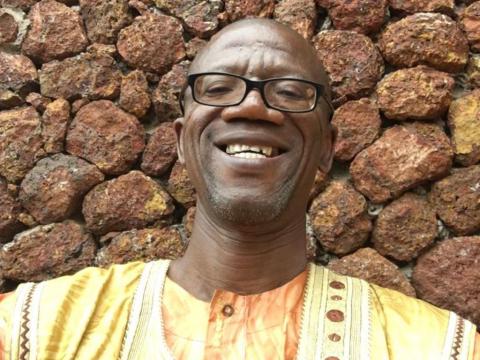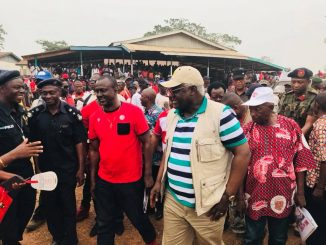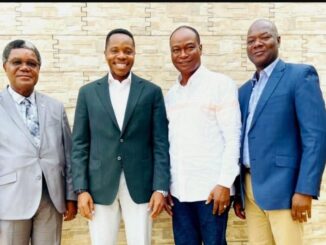
Mohamed Gibril Sesay
I have seen the proportional representation arguments – about its advantages for peace, social cohesion, and better representation of preferences. These arguments are very weak and they are proposals for democratic mischief, drivers of greater fragility, conflict and more. And this is why.
0. On this thingy about its contribution to peace. None of the proposals tell us how that is case. They just say it contributes to peace, peace, peace. As if just saying the words makes it so. Fact is in the electoral system we already know, disruptions in relation to a constituency election may be localized to that particular constituency, and easy to contain. In a proportional representation system, where mischief anywhere in the large constituency can really affect the results everywhere for that constituency, disruptions and violence would be planned for a larger area. For instance, should all of, say Eastern Freetown be one constituency, violence to disrupt the same constituency election could take place at Foullah Town, Upgun, Kissy Mess Calaba Town and Allen Town. In these instances the PR expands the arena for violence rather than contain it.
0. PR undermines accountability at the local level. The electoral system we already know allows for people to know who directly represents them in their constituency. This is diluted in the PR system. I hear all the talk about how accountability to a local area could be allowed for in the PR system. But I have not seen one suggestion as to how it can be operationalised or implemented. Relating to strengthening the accountability strengths with the system we already know, we have been noticing how the dominant parties in the country are moving towards primaries at the local level to elect their candidates for elections. A whole array of structures are already being put in place at party levels- constituency party memberships, ward executive, constituency executive and youth and women party branches. These are all being brought into the fore to vote for candidates to represent them at elections. Those are great moves. The wise thing to do is to strengthen electoral management at those levels rather than throw away these emerging ways of choosing party candidates for general elections as would be the case with PR, where national party people and old boy networks would have their hands strengthened against people at the grassroots. There is little that is democratic about this. The possibility becomes wide open for those whose only claim to elected office may be their paper qualifications, old boy networks, and other non-popular competences. There is nothing wrong with them being in parliament. But let them subject themselves to the test of the people at the grassroots rather than solely rely on their paper qualifications, old boy network and other experiences. PR, I submit, is contempt for the people written into law and structured to prevent accountability to the people.
0. Independents – I have seen very little practical suggestions by the proponents relating on how they would factor in independents in to the system. The large constituencies envisaged in the PR system increases costs of campaigning for independents – for they would have to campaign all over the large district. Moreover, it increases by far the threshold they would need to be elected. Even political parties may have difficulties meeting some of the thresholds suggested, let alone independents with fewer human and other material resources. The PR system may in these circumstances make it very difficult for newer and alternative voices to the dominant political parties to emerge.
0. Electoral knowledge: WIth the system we already know, people know instantly and directly who has won elections in their locality, without need for other tiers of interpretation we would witness in a PR system- where we need statisticians and other very numerate persons to compute winners. This removal of knowing winners from the hands of the people is itself a recipe for increasing perceptions of illegitimacy of the ‘elected’ representatives. This society is still struggling with literacy, and numeracy is at a very low edge for the overwhelming majority of even the literate. Adding those hiatuses of numeracy before knowing winners is bad for the country’s stability and the legitimacy of its governing institutions
0. More concentration of power. Democracy is now moving towards making sure that power is removed from the hands of the few, and put in the hands of the people. That is the rationale for Decentralisation. In fact deconcentrating rather than concentrating power is majorly seen as the way to ensure peace. Sierra Leone’s Truth an Reconciliation Commission Report makes that claim. In Kenya, to diffuse tension in that nation, counties were created, given budgets calculated according to rules laid down in law, and areas identified for their primary responsibilities. PR gives lots of fillips to filthy lipped ‘big men’ at the national level. And dark exchanges of money and dishonesty amongst a few men determines the representational contours of the country. PR is very bad for transparency.
0. And voting gets complicated with the PR suggestions we are hearing. Already, there are many void votes in the system we know. And people want to introduce something new less than a year to elections. How would people know this system to effectively participate? How will the country put in place measures at the local level to counter rogue behavior by electoral officials and other people? How would monitors be trained? With which new contextualized materials?
0. And this NIN shenanigan. I have already heard translations of it that speak to it as the turds – nin, in one of our languages- they seek to throw into the electoral system, to make it smellier. Some people creatively render it as PIN and then say say ‘den done kam with ‘pini’ for we’. This is the level of derision with which the new suggestions are held. And it speaks to the laziness and incompetence of NCRA to want to ride on voter registration to cover its botching of civil registration in this country. There are many other ‘eligibility documents’ and other means to ascertain rightful voters in this country. This ‘pini’ nonsense, at this late hour, adds to the confusion, fragility and potential conflicts that these new electoral suggestions and PR mischief are heating up in the nation.
0. And this talk of PR increasing female representation. The system we know can also do that, retain its many advantages for accountability, rights of independents and decentralize representation. This is how: Two adjacent constituencies can be made one and candidates asked to be paired, one male, one female. The pair that gets the highest votes wins. That way we even get up to 50% of the seats in parliament being women rather than the what the token list system we are hearing in the proposed PR. And it brings greater gender cooperation at the local level to ensure proper delivery of what people want, and takes the tokenism out of what the PR brigade of PR are telling us about.
0. And back again to the social cohesion thingy. In countries like ours, social cohesion is majorly a function of the winner take all nature of executive power- and not of legislative power. We have all seen how parliamentary mandates of the people have been stolen by executive misbehavior in the country – and judicial mischief adding insult to executive misbehavior and recklessness. The driving force then of social non-cohesion is executive misbehavior – and all others follow. The call then is to structure executive authority- to decentralize it, to remove the claws of the central executive in so many decisions. That’s the greater conversation this country needs to have. Already we are seeing how even decentralized institutions like the Freetown City Council are being paralyzed by central executive retention of discretional powers over financing, staffing and other resources. Executive discretions need to be taken away from how these things are done, and replaced with constitutional and other statutory formulae for distributing resources and hiring staff. With these, social cohesion looms better than the misplaced shenanigans of the current PR suggestions.
0. And a bigger problem are the rogue attempts to shove it down the nation’s throat. Those rogue attempts and desperations are symptomatic of ill-intent, and they are driving greater fragilities in the country than creating social and political cohesion. These rogue attempts are moves to centralize executive over the electoral system- from who gets registered, who gets to vote, and who gets to decide what vote counts at even the basic unit of elections- the polling station. The president can remove electoral commissioners at any time according to the new bills before parliament, polling staff have greater discretion to cancel elections at polling stations, the PPRC has greater powers to do its do, and NCRA that has shown its gross incompetence during the ‘national’ registration exercise is made central to who is eligible to vote. All these speak to the same greater centralization of power in the hands of the executive, which we all know is against the grain of the so called social and political cohesion talk. The PR about PR is deceptive, the process is gone rogue, and the substantive goals drives greater fragilities on an already fragile political, economic and social landscape.
+—–++++++—++++
THESE ARE SOME OF THE DISADVANTAGES OF THE PROPOSIONAL REPRESENTATIVE SYSTEM IF ALLOWED:
1. *Any selected MP by the any party will not be accountable to the electorates he /she will be representing*.
2. *There is high tendency for the electorates not to even know there member of parliament or even have familiarity before*.
3. *The party have the right to chose whosoever they want to represent them from that area. That is.. a theme can be selected to represent the party in Kailahum the same applied to any district or tribe*.
4. *It’s limit the electorates power to even express their developmental concerns and have a platform to express those need gaps*.
5. *Only the highest political bidder (the richest amongst the contenders )will be selected by the party to represent the electorates, thereby having the tendency for non popular person to be selected against the will of the majority*.
6. *All political parties that reaches the threshold/ percentage presented by NEC in all districts, will have the chance to have MP from that’s district or constituency as the case maybe*.
*So be wise and say NO to the PR system lontha*.
*Eid Mubarak to you all*.
Tigie Mallay.



